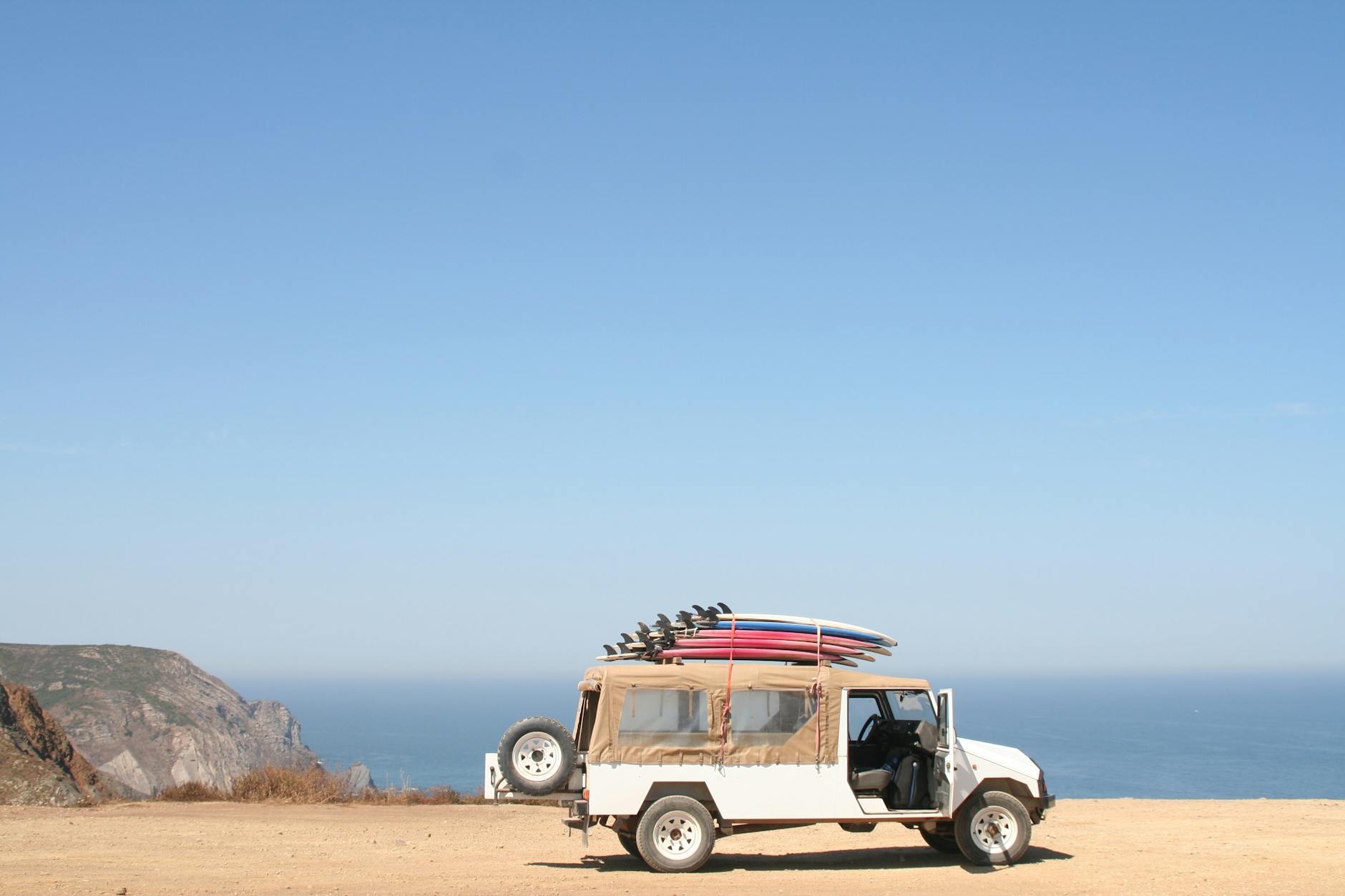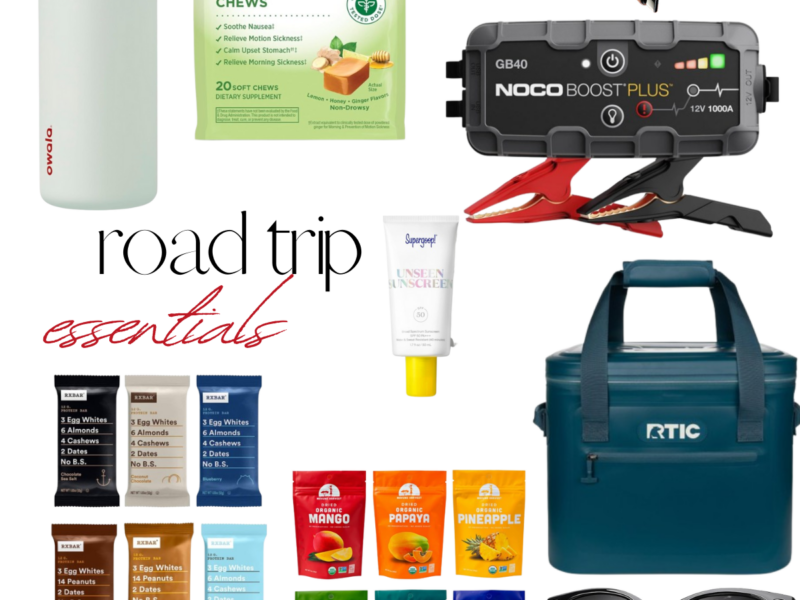So are you ever wondering if it’s better to rent a car or rent a campervan for your road trip. This blog post will dissect the pros and cons of getting a campervan or a car. There’s a lot of road trip logistics and finances to navigate and unbuckle on this topic matter and this blog post will break it down for you.
Exploring with a Rental Car
Cars are familiar and easy to use, offering comfortable driving experiences. Their compact size makes maneuvering and parking a breeze, especially in cities. Rentals are often budget-friendly, with superior fuel efficiency for long trips. Here are some other pros and cons of using a rental car for your road trip.
Pros of Renting a Car for your Road Trip
- There’s lots more variety when renting cars. You can choose from compact cars to SUVs. Rental car companies offer a diverse selection of vehicles to align with your travel style and budget.Craving an open-air experience? Consider a convertible and feel the wind in your hair as you explore scenic route
- Rental cars shield your personal vehicle from the wear and tear associated with extended travel, maintaining its optimal condition.
- Rental cars are readily available in most locations, allowing for last-minute trip planning
- Depending on the car’s size and class, rental fees might be lower compared to renting a campervan, particularly for shorter trips. Additionally, fuel-efficient car options can significantly reduce overall fuel costs.
- Cars are easier to maneuver in the wilderness. Navigate narrow city streets, zip through drive-thrus, and park with ease
Read More: The Ultimate West Coast Road Trip from Northern California to Southern Oregon
Cons of Renting a Car for your Road Trip
- Rental fees can be expensive, especially for longer trips or during peak season. Carefully consider additional charges like insurance and one-way rentals before making a final decision.
- Luggage space might be limited, forcing you to pack light or pay extra for roof racks.
- Less spontaneous travel as you’ll need to plan for accommodation ahead of time and can’t do last minute itineraries
- Requires paying for both car rental and separate accommodation (see cost breakdown below)
- Increased reliance on eating out, which can be more expensive than cooking. Depending on how you eat, you will have to rely on eating out for the most part or eating simple snacks and sandwiches to get you through the day.
Car Rental Cost Breakdown for one Week

Costs vary depending on car size, rental company, and duration. Here’s a sample breakdown for a 7-day road trip, 1500 mile road trip.
| Expense | Cost |
| Rental Cost | $315 ($45/day x 7 days) |
| Gas | $200 (50 gallons x $4/gallon) |
| Food | $350 ($50/day x 7 days) |
| Accommodation | $300 ( $50/day x6 nights) |
| Total Estimated Cost | $1,165 |
- Food: While this can vary greatly depending on eating habits, let’s estimate an average of $50/day for meals at restaurants and rest stops.
- Accommodation: This can also vary greatly and can depend on what type of accommodation you’d want
Campervan Rental
Personally, I adored the campervan adventure. It allows you to truly connect with nature. Renting a campervan adds a layer of adventure and flexibility. Companies like Outdoorsy, Indiecampers and Escape Campervan offer a variety of campervan options. However, it’s not for everyone – the space can feel a bit snug, and you need to be comfortable with a less conventional living situation. This could be the beginning of your #van life or the end of your #vanlife.
Here are some pros and cons of renting a campervan for your road trip.
Pros of Renting a Campervan for your Road Trip
- Sleep, cook, and shower within your vehicle, offering ultimate flexibility and the chance to camp almost anywhere allowed. This translates to ditching hotel bills and significant savings on accommodation
- Ability to embrace scenic campsites, wake up to breathtaking views, and experience the thrill of self-sufficient exploration
- Sleep, cook, and explore without ever leaving your vehicle and all in one machine. Perfect for spontaneous stops and off-the-beaten-path adventures
- Talk about convenience. No need to set up tents or haul camping gear. Campervans come equipped with sleeping areas, kitchens, and sometimes even toilets
- You can pull over and explore on a whim, stopping at stunning overlooks or hidden gems
- You won’t have to unpack and repack every night
- Imagine waking up to breathtaking sunrises or star-studded nights right at your campsite. Embrace scenic campsites, wake up to breathtaking views, and experience the thrill of self-sufficient exploration
Cons of Renting a Campervan for your Road Trip
- Campervan rentals are generally pricier than renting a car. Additionally, gas mileage is lower, leading to higher fuel costs. Camping fees can also add up depending on your chosen locations
- Campervans are significantly larger than cars, requiring more driving skill and attention and harder to maneuver ( at least for me, not my skilled husband). Parking can be tricky, and navigating narrow roads might pose a challenge, (think oversized shoes trying to fit in a ballet slipper)
- First-time campervan users might face a learning curve. Familiarize yourself with operating the van’s plumbing, electrical system, and waste disposal before setting off.
- Slower driving becomes your reality (forget speeding past those scenic overlooks – you’ll be the one everyone’s trying to pass)
- Dealing with waste disposal can be a chore (find designated dump stations and prepare for…well, not the most glamorous task)
Cost Breakdown for Campervan Rental for one Week
Prices vary significantly based on size, amenities, and season.
Here’s a sample breakdown for a 7-day road trip with a mid-sized campervan driving for 1500 miles.
| Expense | Cost |
| Rental Cost | $1,050($150/day x 7 days) |
| Gas | $500 ( 100 gallons x $5/gallon ) |
| Food | $140 ($20/day x 7 days) |
| Campground Fees | $210 ($30/day x 7 days) |
| Total Estimated Cost | $1,900 |
- Gas: Campervans are less fuel-efficient. Let’s assume an average of $5/gallon and a campervan that gets 15 mpg.
- Food: Since you have a kitchen in the campervan, you can cook meals and save on restaurant costs. Let’s estimate an average of $20/day for groceries.
- If you cook all your meals 3x a day for 2 people for 7 days while in the campervan, that alone can be a very significant savings, one that many people fail to take into consideration.
- Restaurants and gas station snacks get incredibly expensive. A $20 camping stove, $20 cooler, basic groceries, and dollar store items will keep you satisfied for much cheaper.
- Campground Fees: Costs vary depending on location and amenities. Let’s assume an average of $30/night for campsites with basic amenities. You can also camp for free on BLM land.
As you can see, the car rental trip comes in at a significantly lower estimated cost, roughly $700 less than the campervan trip. However, keep in mind that this is a simplified example, and your actual costs may vary.
Read More: Must do Weekend Getaways from San Francisco
Here are some additional factors to consider
- Number of Travelers: Campervans might become more cost-effective with more people splitting the rental cost.
- Camping Preferences: Free dispersed camping can significantly reduce costs compared to campgrounds with amenities.
- Cooking Habits: If you’re comfortable eating out most of the time, the food cost difference might be negligible.
My Personal Takeaway…

Read More: Unforgettable West Coast Road Trip from SF to San Luis Obispo
There’s a lot to be said for having the ultimate flexibility of having your entire “Mobile AirB&B” with you everywhere you go as well, especially, again, if you’re prepping meals and such to help keep your expenses down. We travel extensively by RV and would absolutely positively save money on a say 7 day road trip from SF to Portland taking our camper vs staying at hotels and airB&B’s.
Read More: Best Road Trip Itinerary from SF to Portland
If you’re outdoorsy and want to hit national parks, go campervan. If you prefer comfort and don’t mind planning stops, stick to your car and hotels. Personally, I loved the campervan experience, but it’s not for everyone. It can be a bit cramped and you’ll need to be okay with more “rustic” accommodations.
How to Plan Your Perfect Road Trip Journey

If Traveling By Car
- Research hotels, motels, or Airbnbs along your route. Consider booking in advance, especially during peak seasons. Factor in nightly rates and potential additional fees.
- Plan meals in advance to avoid impulse restaurant stops. Consider grocery shopping and packing coolers to save money. Utilize rest areas or picnic spots for on-the-go meals.
- Research average gas prices along your route and factor in your car’s fuel efficiency to estimate gas costs.
If traveling by Campervan
- Research and book campsites in advance, especially for popular locations or during peak seasons. Consider free dispersed camping options (camping on public land) for budget-conscious travelers, but be aware of regulations and limitations.
- Stock up on groceries before your trip. Invest in a cooler for perishables and utilize the van’s kitchen facilities. Plan meals and create grocery lists to avoid unnecessary spending. Refill water tanks at designated locations.
- Campervans are less fuel-efficient than cars. Research average gas prices and factor in your car’s fuel efficiency to estimate gas costs.
The Bottom Line
As an avid roadtripper ,I’ve been lucky enough to experience both car and campervan road trips, and honestly, the perfect choice depends on your travel style.
There’s no magic bullet answer here. There is no one that is “better” , just trade offs. It all depends on your budget, travel style, and how much you value comfort (or adventure!)
- Pinching pennies? Your car might be the champion.
- Want flexibility and creature comforts? Renting a car could be your winner.
- Craving an all-in-one adventure mobile? A campervan awaits (just be prepared to slow down and embrace the not-so-glamorous aspects of van life).
Bonus Tip: Still undecided? Some rental companies offer cars with rooftop tents. This sweet middle ground provides more space than a car and easier sleeping than a tent. Also if you are super super adventurous you could camp out of a car with a small fold up shade, small gas or coals bar b q, blow up bed, folding camping chair, cooler, and car w/ folding rear seats long enough to sleep in. IF you are adventurous.




